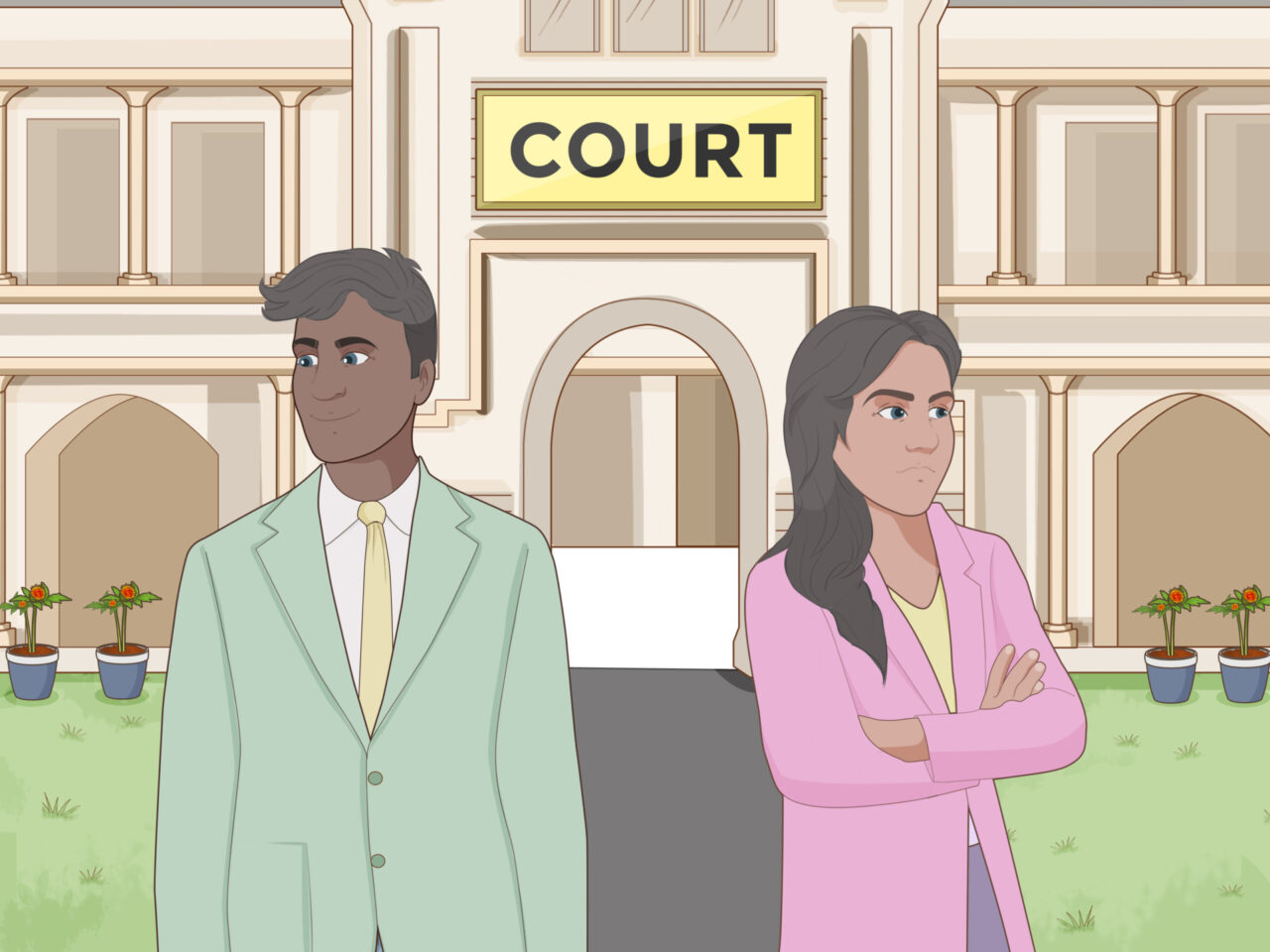When continuation of matrimonial bond itself is a sufficient to cause immense mental cruelty, then keeping parties tied to a legal bond of marriage would only mean snatching away from them the chance to ever lead a fulfilling life. These were stated by Justice Vipin Sanghi in the case of Vandana Singh vs. Satish Kumar [MAT.APP.(F.C.) 97/2019] on 03.01.2022.
The facts of the case are that the marriage of the parties was solemnized on 06.05.2010 according to Hindu Rites and Ceremonies. It was the case of the Appellant that at the time of the marriage, she was pursuing B.Tech. from Lucknow University, and the respondent used to visit India from Canada to meet his family. It was during these visits that the respondent started following her, and expressed his love for her. Thereafter, the Appellant and Respondent became friends and started communicating with each other through telephonic calls and messages. During this time, the Respondent informed the Appellant that he was pursuing MBA from Canada, and gave his date of birth as 27.01.1983. At the time of their marriage the Appellant came to know that the actual date of birth of the respondent was 27.01.1977. However, at that time, she could not back out from the marriage out of fear. The Appellant further averred that the Respondent had initially, cleverly, convinced her not to inform either of their parents about their marriage. After the marriage ceremony, the couple went to Lucknow, and then to Agra for their honeymoon, and thereafter both parties returned to their respective homes. Thereafter, the Respondent left for Canada for his job, taking along with him all marriage documents and photographs. The Respondent returned to India, after one and a half years of the marriage, on 19.10.2011. Both the Appellant and the Respondent stayed in Mumbai for two days along with the respondent’s sister. The next time the Respondent returned to India was from 13.10.2012 to 20.11.2012. This time the parties went to Nainital on vacation for two days. The next visit of the Respondent to India was on 03.02.2014, when the parties stayed together in Delhi for one day, after which the Respondent again went back to Canada. The Appellant averred that on all these occasions, the Respondent was physically, mentally and sexually abusive towards her. Owing to the above conduct of the Respondent, the Appellant finally instituted the divorce petition on 28.04.2014.
The Counsel for the appellant contended the parties have never lived together for any significant length of time, since inception of their marriage. The respondent treated the Appellant as his overseas wife, only to use her as a temporary companion, and to have someone to serve him when he came to India on short visits after yearly gaps. In the past seven years, after institution of the divorce proceedings, the parties have admittedly not communicated with each other. The respondent’s submission that the appellant has been forced and is under pressure to not stay with the respondent, is wholly denied. The Appellant is a 34 year old woman with a professional degree, having worked in a MNC. She is a major, and has been consciously maintaining her stance consistently. The Appellant has no intention to reconcile with, or stay with Respondent under one roof.
The Counsel for the Respondent submitted that the Appellant was well aware of his age before their marriage, and that their marriage was a happy one. He further submitted that he traveled to India in 2008, when the parties stayed together for forty-five days. Thereafter, the Appellant visited in the year 2009 and then in 2010 for about two months each, when the parties spent most of their time together. The respondent further averred that it was due to the pressure from the Appellant’s family, that she was refusing to reside with the Appellant, as the family of the Appellant was against their inter-caste marriage. It was contended that if the Appellant was given a choice, she would choose to live with the respondent.
The High Court of Delhi held that the period of separation and the deciduous meetings of the parties are enough to show that their matrimonial bond has broken and is beyond repair. After the marriage, which is now 11 years old, the parties lived together only for a few days together in Lucknow, Agra, Delhi, Nainital and Mumbai, when the Respondent came back from Canada on vacations. The damage to the marriage is evident. The parties in the present appeal are at an age, where they may start a new life, if given a chance. However, keeping them tied to a legal bond would only mean snatching away from them the chance to ever lead a fulfilling life. Continuation of this matrimonial bond, itself, is sufficient to cause immense mental cruelty to the appellant, at least, if not to both the parties. The respondent never really provided for her after their marriage. The respondent has been claiming that it is the Appellant’s father and brother, who have turned the matrimonial relationship between the parties into hell. Thus, it is clear that the respondent has treated, and continues to treat, the appellant’s family with disdain. This conduct of the respondent would also have caused immense mental cruelty to the appellant, sufficient for her to reasonably conclude that she cannot continue her relationship with the respondent. In view of the aforesaid, the Court allowed the appeal and set aside the impugned judgment and decree, and dissolved the marriage between the parties by a decree of divorce on the ground of cruelty contained in Section 13(1)(ia)of the Hindu Marriage Act.
Judgment reviewed by Shristi Suman. Read Judgment


